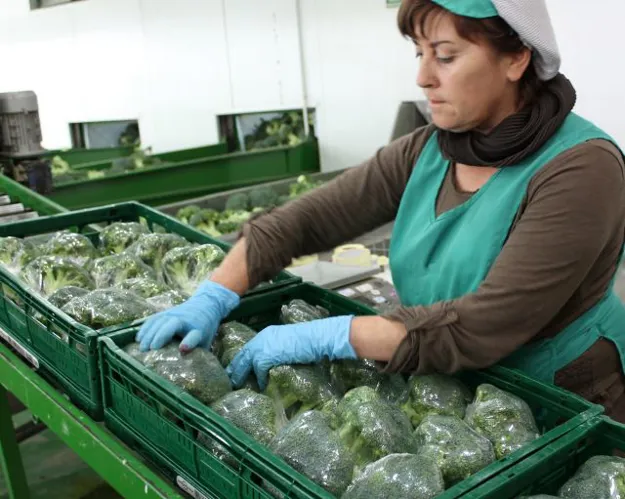The broccoli and cauliflower producing sector of the Region of Murcia has been particularly affected during the latest campaign and its initial forecasts for the next one are negative. The Murcian productions are basically intended for export; in 2021, around 335,000 tons of broccoli and cauliflower were shipped from this region. Murcian companies are also devoting increasing volumes to the domestic market and a significant amount is also going to the freezing industry.

Juan Marín, president of the Broccoli and Cauliflower Sector Committee of the Association of Producers-Exporters of Fruit and Vegetables of the Region of Murcia (Proexport), has assessed the current situation of producers at this point in the campaign. "We have had a few months marked by the impact of the heavy spring rains and the unstoppable increase in production costs. Although we started with good prospects for the prices at origin, we have not been able to reach the necessary balance to offset the brutal cost increases that started even before the conflict in Ukraine. The sector is making a negative and concerning balance of this campaign, due to the difficulties that all producers have had to pass these costs on to intermediaries and distributors and be able to obtain minimally decent prices at origin."
He also warns that "we are facing one of the most difficult campaigns in recent years. If the lack of inputs or the escalation of energy prices continues, producing food will become a high-risk activity for companies and farmers."
As far as the current situation is concerned, Felipe López, member of the Vegetable sector of the Federation of Agricultural Cooperatives of Murcia (Fecoam), said that "at the moment, growers are cultivating in high areas, but we are facing a campaign marked by one of the hottest summers in history. The extreme weather conditions, with unusual heat waves, have had a direct impact on the broccoli and cauliflower plants. This has led to a reduction in the yield of the plantations and in the volume to an extent we had not experienced before."
He also said that "we are all being fully transparent and explaining our customers that the high temperatures, both at day and night, will cause crops to be severely affected over the next three weeks. The root of the plant is unable to assimilate nutrients at such high temperatures, so there will be a considerable drop in the expected production and severe economic damage."
Request for flexibility in contracts
Growers are uncertain about the autumn-winter campaign, which is expected to start in the first weeks of October-November, as it will undoubtedly be marked by the results achieved during the months of July and August.
According to the growers, some customers, especially in the United Kingdom, but also in Spain and Germany, are exerting undue pressure to set unfair conditions in the supply contracts.
Spanish producers are rightly demanding greater flexibility to be able to adapt to the current uncertainty in the markets, asking for clauses allowing weekly or monthly adjustments, depending on how the cost levels, exchange rates and other factors evolve.
Marín and López agree that "Spanish producers are facing the autumn-winter season perceiving it as a real challenge, given the higher costs and the difficulties in the planning. We have an uncertain, difficult season ahead, and this will require us to review the current commercial relations between growers and customers, because if we are not able to find a balance, it will be impossible to obtain good results."
 For more information:
For more information:
Proexport
www.proexport.es
